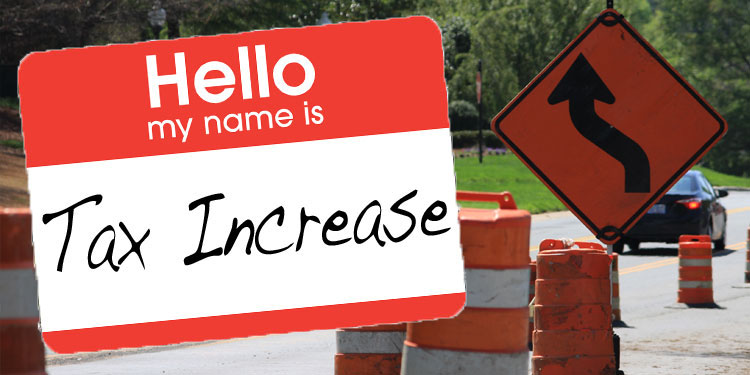
March 13. By Dave Yochum. It’s looking like there could be an increase in next year’s municipal budget that could result in a tax increase for many Cornelius homeowners.
While budget discussions only began in earnest at the Town Board’s annual retreat at the Graylyn Conference Center in Winston-Salem last week, there are plenty of projects on the town’s capital project list that must be funded with municipal bonds—approved by voters in previous elections.
The new debt is on the order of $28 million, more than double already issued debt levels.

GRANT
“We’re at a crossroads,” said Andrew Grant, who is working on his first budget as Town Manager in Charge.
It’s understandable in light of the Catch 22 delivered by the state to towns along I-77 affected by the toll lanes. Either accept $120 million in local road improvements AND contribute $20 million in local funding, or wait 20-plus years for the much-needed improvements.
Cornelius voters opted to fund the $20 million with bonds, like a home mortgage.
The new debt service will be more than $2.5 million a year in FY 2021 and grow in future years.
This, in a town budget that’s only about $23.47 million in 2020.
Somebody has to pay the piper, and that’s taxpayers who will pay off the bonds the same as a homeowner pays off a mortgage.
Thing is, there are still bond payments of more than $2 million a year on previous debt.
To make next year’s budget even more challenging, the board voted 3-2 before the budget retreat to give raises to town employees. It means personnel costs in the new fiscal year will rise 5 percent, reflecting an additional $419,000 in payroll.
Is revenue neutral even possible?
It makes the notion of turning in a “revenue neutral” budget exceedingly difficult.
Yet that’s what the successful Town Board candidates—except for one—promised during the 2017 campaign. Only Thurman Ross, a Democrat, made no such promise.

ROSS
Commissioners Denis Bilodeau and Michael Miltich, both Republicans, voted with Ross last week to raise salaries ahead of the budget retreat.
The two remaining commissioners—Republicans Dave Gilroy and Kurt Naas—angrily voted against the increase which the others considered necessary to stem the tide of personnel defections to nearby jurisdictions like Charlotte, Davidson and Huntersville.
Some other decisions are optional, including whether or not to repave the parking lot at Torrence Chapel Park, or whether or not to spend $7,100 on a crash data retrieval system for the Police Department.
They’re most likely going to be “no’s” when the board gets down to brass tacks.
The five commissioners, already somewhat divided by their approaches to spending, will decide down to the penny how about $24 million of taxpayer money will be spent between July 1 of this year and June 30 of next year when the 2019-20 fiscal year ends.

BILODEAU
Bonded indebtedness
At the budget retreat, some commissioners said they were surprised by the size of the debt payments. “I didn’t realize the one year payment on the new debt would be 10 percent,” Miltich said.
“With this amount of debt, of course we knew it was coming, it is going to be impossible to be revenue neutral,” Miltich said.
Revenue neutral is a term used to explain what the tax rate would be without generating new revenue from the higher valuations property owners received in the mail in January.

MILTICH
Tax valuations are up roughly 30 percent to for residential and 70 percent for commercial. Some are higher; some are lower.
To remain revenue neutral, the budget would call for spending at the rate of 20.01 cents per $100 valuation, down from 25.5 cents.
Grant used words like “bleak” and “not sustainable” to explain the budget picture to members of the town board, staffers, the fire chief and one or two private citizens who attended the budget retreat.
The option, of course, is to raise the tax rate 3-4 cents to cover all the costs associated with a big-picture, broad-stroke approach to public spending.
Indeed, Grant said he is working with department heads to cut their budgets by 1 percent.

GILROY
That’s woefully modest, and ultimately inadequate, said Gilroy, the veteran budget hawk. “This is a year that’s unprecedented in every way,” he said. “It can’t be business as usual.”
He said: “Guys, you have enough resources do with what you have. Guys, tighten your belts.”
What’s happening is a convergence of disparate financial factors: A monumental increase in valuations, unprecedented demand for labor and the debt service or mortgage payments.
Champagne tastes?
The problem is not 1 percent, Gilroy said, it is 2-3 percent. “You have to get department heads to look at it and save that money,” Gilroy stated.
The 911 center, a feather in Cornelius’ cap, was brought up. Can we join in another town, or have other towns join in with us? It’s apparently all on the table, including the notion of establishing a regional fire department.

NAAS
Fire Chief Neal Smith wants six new paid, full-time firefighters to ensure that all shifts are covered at the town’s two fire stations. The cost: $390,000 in money that’s never been budgeted before.
That went over like baking soda on a grease fire.
The consequences of not trimming Grant’s “Moderate” spending plan—one of several options floated by the town manager—are significant property tax increases for an indeterminable percentage of Cornelius property owners.
Experts say anyone with an increase of 40 percent or more should appeal the Tax Assessor’s valuation, but smaller increases might also warrant scrutiny.
The “Moderate” spending plan, which seemed to be pitched as a compromise at the retreat, suggests a 2.5 cent tax rate increase from the 20.01 cent revenue neutral rate, or 22.51 cents.
The owner of a $250,000 home is paying the Town of Cornelius $637.50 at the old tax rate of .00255.

WASHAM
But that was last year, before the revaluation.
The county tax assessor’s office has said the average increase in residential value is 30 percent.
So Cornelius Today multiplied $250,000 by 130 percent, to get a 30 percent increase in value, or $325,000.
We took Grant’s “Moderate” increase in spending, which calls for a tax rate of .2251 with the new valuations, and came up with $731.58 in annual local taxes on a $325,000 Cornelius home.
It amounts to a roughly 15 percent increase in local property taxes, and there’s no telling what Mecklenburg County, with a Board of Commissioners consisting of just one party, will do. The county, by the way, gets roughly three-fourths of the overall tax bill.
It’s early in the budget cycle, but eyebrows were raised at the Graylyn retreat. There was stony silence from Naas, who opposed the pay raise for town staff, along with Gilroy.
A penny here, a penny there
Each penny in the tax rate on the new valuation raises an additional $700,000 for the town. The need for infrastructure and amenities doesn’t happen in towns that aren’t growing, so, big-picture, this can be viewed as a good thing in terms of town-building.
And if the $325,000 home seems like a lot of m0ney for this example, it’s not for modern-day Cornelius.
Zillow says the median listing price of a Cornelius home is $395,000 right now. The median sale price was $281,500 Dec. 31, so $325,000 is a close proximation of the middle—at least among homes that transact.
Mayor Woody Washam said the tax rate will be set by a majority of the Town Board.
“It will not be a decision for just 2020 but for the future of the town’s financial health years from now. It will also determine whether the town can continue to provide the levels of service that our community has come to expect. This will require responsible due diligence by Commissioners to properly represent the feedback they are receiving from the majority of the citizens of our town,” he said.
Most of the commissioners live in homes valued at much more than the median price, so they have skin in the game as well.
Thing is, property taxes most impact those who are staying put.
The tax assessor says informal appeals are still being accepted. To appeal your property valuation, visit the county website at www.meckreval.com or call the Mecklenburg County assessor’s office at 980-314-4226.




